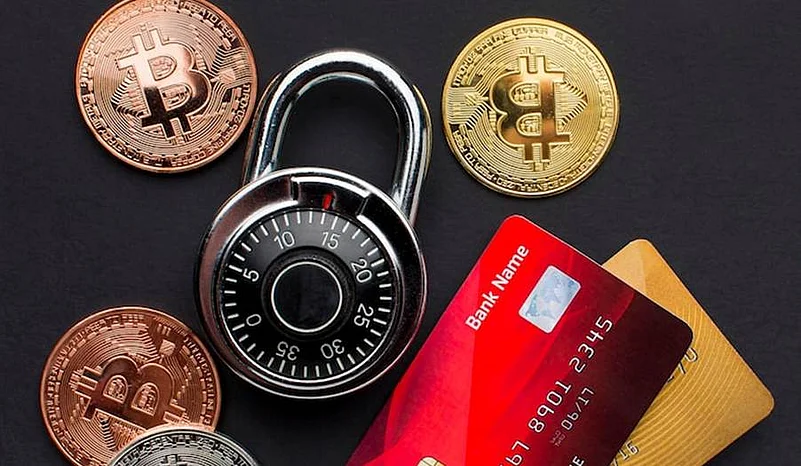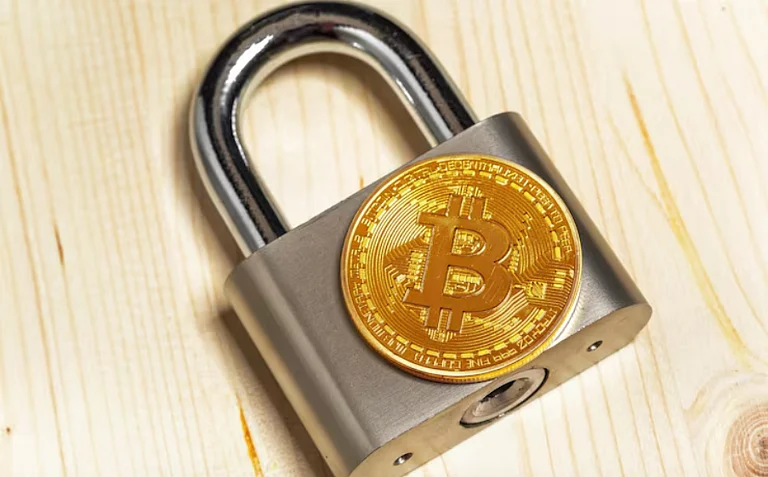Your entire crypto portfolio is protected by a single point of failure: one private key. If that key is lost, stolen, or compromised, your funds are gone forever. It's the single biggest risk in the world of self-custody.
What if you could eliminate that risk entirely?
That is the promise of a multi-signature (multi-sig) wallet. By requiring multiple keys to authorize a transaction, a multi-sig wallet creates a decentralized security system that protects you from theft, accidents, and human error. It is the single most powerful security upgrade you can make to safeguard your digital assets.
What Is a Multi-Signature Wallet?
A multi-signature wallet is a cryptocurrency wallet that can only be used with multiple private keys to sign a transaction. Unlike a conventional wallet that uses one private key, multi-sig wallets share the approval responsibility among several parties. This configuration prevents one person from having control of the funds, thus eliminating the risk of illegal access or theft.
How Multi-Sig Works: The Safe Deposit Box Analogy
Think of a standard crypto wallet as a personal safe with one key. Only you can open it, but if you lose the key, the contents are lost forever.
A multi-sig wallet is like a bank's safe deposit box. It requires two keys to open: your key (one private key) and the bank manager's key (a second private key). A thief who steals your key is still locked out.
This is the "M-of-N" structure. A wallet is created with a total number of keys (N) and requires a certain number of those keys (M) to sign a transaction.
A 2-of-3 setup is most common: The wallet has three total keys, and any two of them are required to move funds. This provides a perfect balance of security and redundancy.
Who Needs a Multi-Sig Wallet? The Key Use Cases
1. The Prudent Individual Investor (The Ultimate Backup)
For individuals, a 2-of-3 multi-sig is the ultimate defense against loss.
Key 1: Stored on your primary hardware wallet (e.g., Ledger).
Key 2: Stored on a backup hardware wallet in a secure home safe.
Key 3: Stored as a seed phrase in a bank's safe deposit box.In this setup, you can lose any one of your keys to fire, theft, or accident and still retain full control of your funds. A hacker who compromises one key is powerless.
2. Businesses & DAOs (The Corporate Treasury)
For any organization managing a treasury, a multi-sig is non-negotiable. A 3-of-5 setup, where keys are distributed among key executives (CEO, CFO, CTO, etc.), ensures that no single individual can misappropriate funds. It enforces collective, transparent decision-making.
3. Families & Partnerships (The Joint Account)
A multi-sig wallet is the perfect tool for managing joint funds or for estate planning. A 2-of-2 setup can ensure both partners must agree on a transaction. A 2-of-3 setup can be used to grant a trusted lawyer or family member access in case of an emergency, but without giving them unilateral control.
Advantages and Disadvantages of Multi-Signature Wallets
Advantages
Increased Security: Multiple keys minimize the potential for unauthorized access.
Shared Control: Ensures accountability among multiple entities.
Redundancy: Offers back-up possibilities in case of key loss.
Flexibility: Configurable arrangements to accommodate diverse requirements.
Disadvantages
Complex Setup: Technical expertise necessary to set up.
Potential Delays: Transactions can be delayed due to multiple approval requirements.
Management Overhead: It becomes a hassle to keep tabs on numerous keys.
Comparison: Multi-Signature Wallets vs. Single-Signature Wallets
Feature | Multi-Signature Wallets | Single-Signature Wallets |
Number of Keys | Multiple keys required | Single key required |
Security Level | High | Moderate |
Control Distribution | Shared among multiple parties | Solely with the wallet owner |
Redundancy | High | Low |
Setup Complexity | High | Low |
Conclusion
Multi-signature wallets represent a significant advancement in cryptocurrency security, offering enhanced protection against unauthorized access and promoting shared control among multiple parties. While they may require more effort to set up and manage, the benefits they provide in safeguarding digital assets are substantial. As the cryptocurrency landscape continues to evolve, adopting robust security measures like multi-signature wallets will be crucial in ensuring the safety and integrity of digital assets.
Frequently Asked Questions (FAQs)
Q1: Are multi-signature wallets compatible with all cryptocurrencies?
A1: While many cryptocurrencies support multi-signature wallets, it's essential to verify compatibility with the specific blockchain of interest.
Q2: Can I use a multi-signature wallet for personal use?
A2: Yes, individuals can set up multi-signature wallets for personal use, providing an added layer of security for their digital assets.
Q3: What happens if I lose one of the keys in a multi-signature setup?
A3: As long as the required number of keys are intact, the funds remain accessible. However, it's advisable to have a backup plan in place.
Q4: Are there any fees associated with multi-signature wallets?
A4: Some multi-sig wallets may have associated fees, especially if they offer additional services or features.
Q5: How do multi-signature wallets compare to hardware wallets?
A5: While both enhance security, hardware wallets store private keys offline, making them less susceptible to online threats. Multi-signature wallets, on the other hand, require multiple keys to authorize transactions, adding an additional layer of security.

























